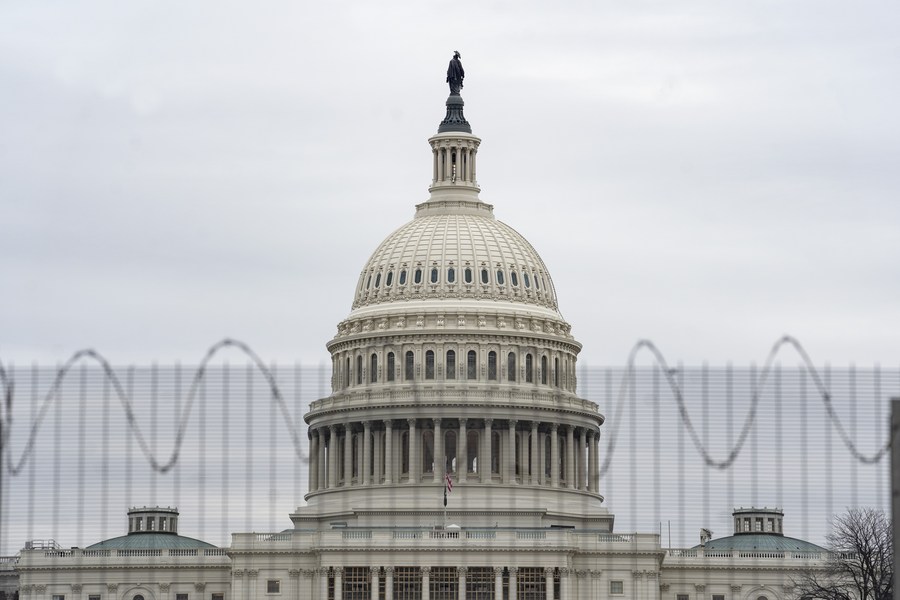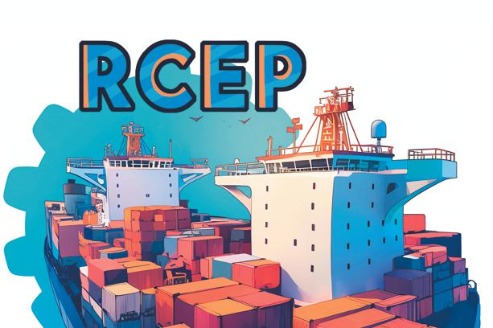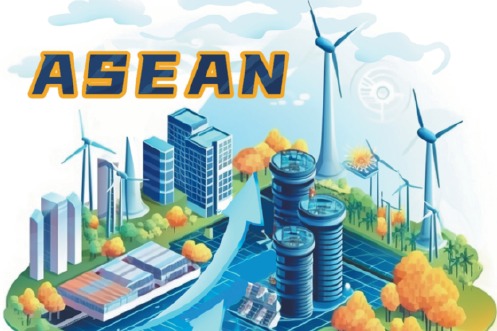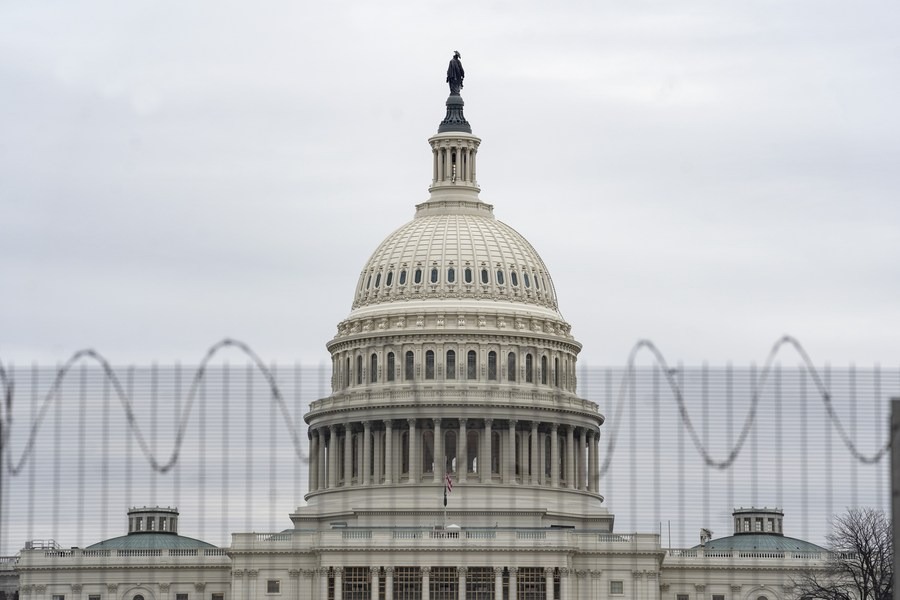America's democracy in decline


Since the new administration took office, the United States has taken actions that weaken democratic values, widen social divisions, and violate global economic and trade rules.
These moves not only harm the country's democratic foundations, but also lay bare the deep-rooted flaws in a political system that has long claimed to be the "model of democracy."
Chaos in American democracy
More than two centuries ago, the founding fathers of the US designed a democratic system based on the separation of powers, to ensure checks and balances that would prevent any branch of government from accumulating too much power.
Yet, the vision of democracy has lost its shine in the US today.
Despite repeated changes in party leadership and numerous reform attempts, the underlying contradictions of American democracy remain unresolved. The political elite—whether represented by capitalists or career politicians—are more interested in preserving their power and wealth than in serving the people.
The latest White House team follows the same playbook. The only difference is that the current administration has dropped all pretense, using blatant tactics without the usual political cover.
For instance, when Congress was voting on critical issues like national budgets recently, the administrative branch openly pushed lawmakers to toe the party line, ensuring votes in favor of the administration and leaving almost no room for dissent.
This kind of authoritarian move has severely eroded the founding principle of separation of powers. Media outlets like The New York Times and Politico argue that the current Congress operates more as an appendage to the White House than an independent branch, signaling a troubling shift in constitutional balance.
Moreover, the administration is increasingly relying on executive orders, bypassing Congress altogether. In just over two months in office, more than 100 executive orders have been signed, surpassing all previous US presidents in history. What was originally intended as a tool for addressing emergencies has now become a tool for impulsive, politically driven decisions.
In personnel appointments, the administration has favored loyalty over competence, leading to the rise of inexperienced individuals in key government positions.
The result is a highly factionalized government, with political insiders prioritizing personal and partisan interests over the broader needs of the public. Some critics argue that the US is witnessing a resurgence of patronage politics reminiscent of the 19th-century spoils system, with the government increasingly operating as a privatized entity dominated by presidential allies to serve familial and narrow political interests.
The recent "Signal Gate", which shocked the international community, also epitomizes the chaos in the American-style democracy. The once-glorified US decision-making process—now reduced to hasty group chats and meme-driven discussions within the President's inner circle—was laid bare in the planning of the airstrikes against Yemen's Houthi forces. Critical military actions were approved in under two hours with no data-driven analysis or substantive debate, followed by self-congratulatory backslapping. Astonishingly, none of them realized a journalist had infiltrated the "secure" chatroom.
American democracy has already become a chaotic, disjointed system. The crisis that the US faces today is not sudden—it has been building up for years. Deep-seated contradictions within the political system, such as winner-takes-all politics and the prioritization of money over the public good, have reached a boiling point.
The erosion of transatlantic alliance
The US democracy crisis is also mirrored by its deteriorating relationships abroad, particularly evident in the fraying of transatlantic ties. This tectonic shift culminated at the 2025 Munich Security Conference, where the US Vice President accused European governments of "systematic suppression of legitimate political movements under the guise of combating extremism" and "alarming regression in core democratic freedoms."
In a pointed rebuttal, the Dutch Prime Minister invoked the specter of history: "Europe learned through bloodshed that no single power holds monopoly over democratic governance," encapsulating the continent's growing resistance to American normative hegemony.
At the same time, the US has capitalized on Europe's security concerns. By abandoning previous security commitments, the US has pressured NATO members to increase their military spending.
The dramatic scene of Ukrainian President Volodymyr Zelensky's public humiliation during his visit to the White House exposed the growing alienation between Europe and the US as Europeans watch in disbelief the fracturing of the post-WWII international order before their eyes.
Global disillusionment
Multiple authoritative polls reveal a growing disillusionment with the American-style democracy.
In Latin America, public trust in US-promoted democratic mechanisms has sharply declined, with 63% of respondents expressing skepticism in a 2023 survey. In Southeast Asia, perceptions are marked by even greater skepticism.
A 2022 report from the ASEAN Studies Centre shows that 71% of Indonesians and 68% of Malaysians believe the US is either "no longer" or "never was" a true democratic exemplar.
Singaporean Defense Minister Ng Eng Hen explicitly warned at the 2023 Shangri-La Dialogue: "The US has forfeited moral authority through its transactional brinkmanship—acting as geopolitical arsonist while profiteering from others' conflicts."
The Economist Intelligence Unit downgraded the US to a "flawed democracy" in its 2023 Democracy Index, citing gerrymandering and voting rights erosion. Most damningly, the progressive US journal American Prospect stated in its April 2024 cover story: "By any measurable standard—wealth inequality, corporate capture of legislation, voter suppression—America fails the democracy test."
The world is increasingly aware that American democracy is not a universal model to follow. As scholars like Francis Fukuyama have noted, the US has undermined the post-1945 international order, retreating into a 19th-century view of politics based on territorial expansion and spheres of influence.
The inevitable decline
The decline of American democracy is not a sudden crisis, but the inevitable result of long-standing structural problems.
First, American democracy is systematically flawed. Since the 1960s in particular, the Democrats and Republicans have alternated in power, reducing the so-called "multiparty system" to a mere facade. In the context of Democratic-Republican rivalry, the general public's participation in politics is restricted to a very narrow scope. Politicians in Washington, D.C. are preoccupied with securing their own partisan interests and couldn't care less about national development. Worse still, the government efficacy is inevitably weakened, law and justice trampled upon, development and progress stalled, and social division widened.
Second, the capitalist system is inherently at odds with the US democracy. As Karl Marx long argued, the bourgeois system of universal suffrage merely allows the oppressed class "to decide once every few years which member of the ruling class was to represent and repress them in parliament". This system grants people formal political equality but conceals the substantive economic inequality rooted in capitalist property relations, thereby perpetuating a "democratic illusion".
Over a hundred years ago, Republican Senator from Ohio Mark Hanna said of American politics: "There are two things that are important in politics. The first is money, and I can't remember the second."
Today, money has not only remained "the currency" in US politics, but also become even more indispensable. Only people with enough capital can enjoy their democratic rights provided by the Constitution. Money politics have increasingly become an "irremovable tumor" in American society and a mockery of democracy in the US
In conclusion, the decline of American democracy is not just a temporary setback—it is the result of deep-seated, systemic flaws. The US is unable to adapt to the changing global realities, and its democracy is no longer capable of meeting the needs of its people.
As the world moves forward, America's once-revered model will increasingly be seen as an outdated relic, no longer capable of serving the aspirations of its citizens or inspiring others.
The views don't necessarily reflect those of China Daily.
If you have a specific expertise, or would like to share your thought about our stories, then send us your writings at [email protected], and [email protected].
































